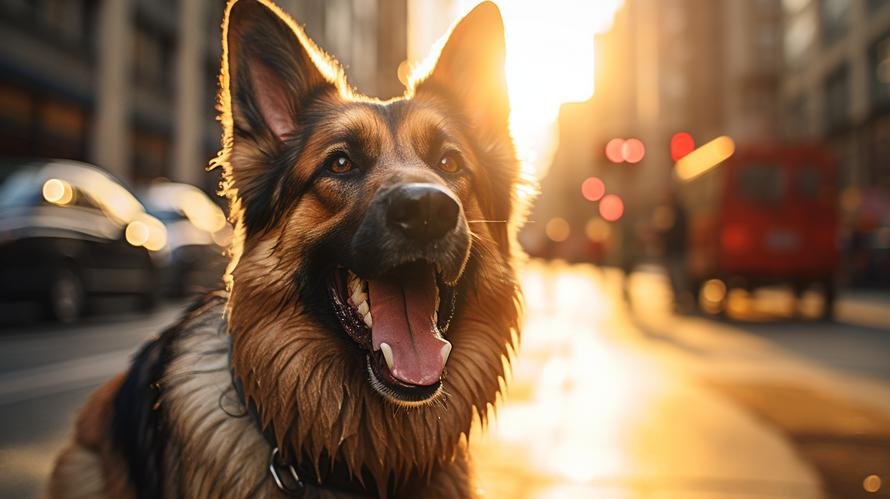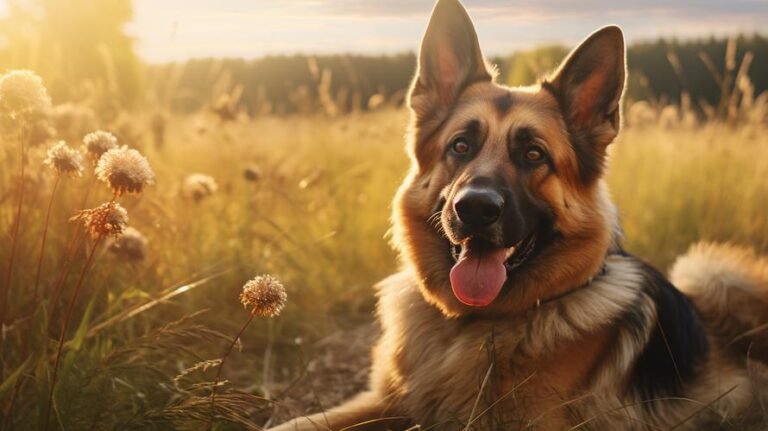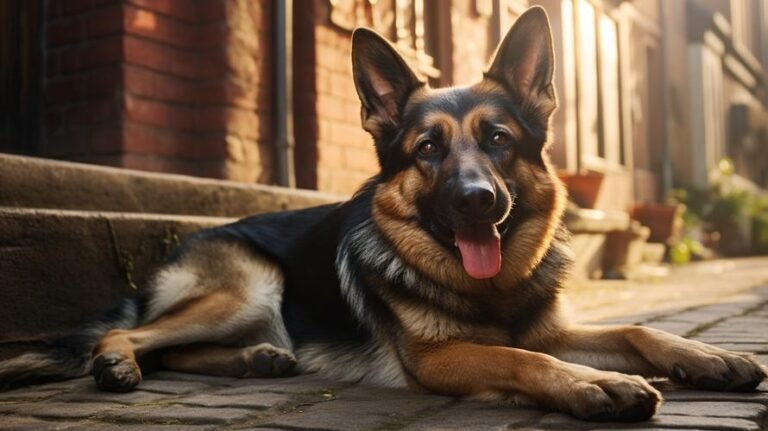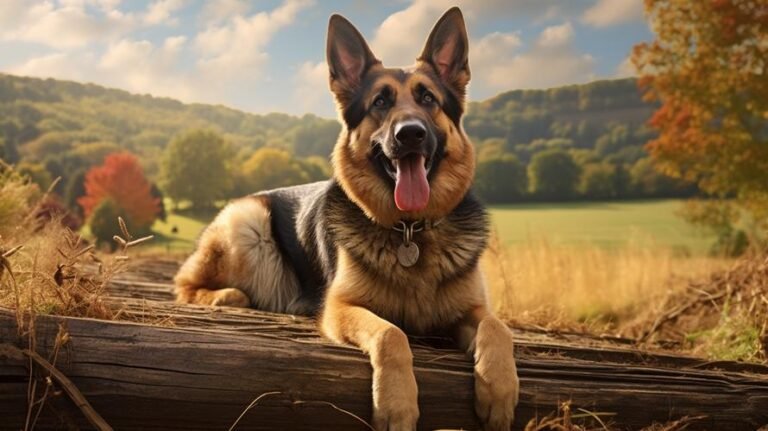When it comes to finding a loyal, intelligent, and protective companion, one breed often stands out – the German Shepherd.
If you’ve ever marveled at the disciplined, alert nature of a police dog on duty, chances are, you’re looking at a German Shepherd. The breed’s origins back in the 1800s were designed around these exact qualities, born to serve. And serve, they certainly do! However, does the disciplined nature and rigid training of these dogs make them a good guard dog for your home?
One might assume that guard dogs and police dogs are pedigrees of the same functionality, a matter of simple semantics. But, as we delve deeper, it’s clear there’s a lot more to the subject. Therefore, to understand whether German Shepherds can be relied upon for security, we must take a deep dive into the breed’s history, defining characteristics, skills, and training.
Origins in the hills and valleys of Germany led the breed to take the name – German Shepherd. They were bred meticulously to round up and protect their keeper’s flock. The German Shepherd’s splendid show of loyalty and intelligence gave the world a canine so remarkable, it was soon recruited for a multitude of other roles. From working as a military dog in the world wars to providing assistance to the disabled, German Shepherds have always been at the forefront of canine heroes.
So, what makes them a well-suited candidate for security? A few aspects set them apart from the pack. For starters, German Shepherds have a versatile build – they’re robust, agile, and by no means a small breed, weighing anywhere from 50 to 90 pounds. It’s their sturdy construct that helps them intimidate an intruder away.
But it’s not merely their physical strength and size that make German Shepherds excellent for security. In fact, their intelligence and quick receptiveness to training make them the top choice for many military, police, and security jobs worldwide. Right from the 20th century, they’ve shown exemplary performance in search-and-rescue operations, drug detection, and bomb-sniffing, pointing towards their stellar ability to be trained.
Yet, would these characteristics translate well to a home environment? Can you rely on a German Shepherd to safeguard your family?
While it’s not uncommon to witness reports of German Shepherds acting protectively towards their families in times of need, it’s essential to remember that not all dogs are the same. The temperament, training, and socialization of a German Shepherd can significantly influence their guardian instincts.
Often, a well-socialized and appropriately trained German Shepherd will make a faithful and vigilant guard dog. These dogs can sense differences in the environment and notify you when there’s something unusual happening. Nonetheless, each dog has a unique personality.
Now, you might ask, “How can I ensure my German Shepherd becomes a good guard dog?”
Well, early socialization is key. Expose your dog to different situations while they’re a puppy. This helps them learn how to react appropriately when they’re adults. Training is just as crucial. You could employ a professional dog trainer or attend obedience classes with your dog. Remember, positive reinforcement is the best way to train any dog. Reward them for good behavior, and they’re likely to repeat it.
Yet, remember, having a German Shepherd or any dog for the sake of security should not be your sole reason for adoption. These loyal animals are more than guard dogs. They need love, care, and companionship just as much as anyone. Owning a German Shepherd is an entire journey in itself, filled with joy, loyalty, protection, friendship and a whole lot of woofs!
So, to culminate, can a German Shepherd be a guard dog? By considering their intelligence, loyalty, and easy trainability, the answer is a resounding yes. But most importantly, they can be a loving part of your family and enrich your lives with their playful, affectionate, and loyal demeanor. After all, there’s a reason why they’re one of the most popular breeds worldwide!



